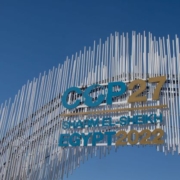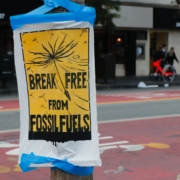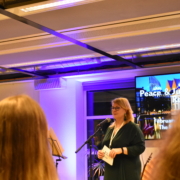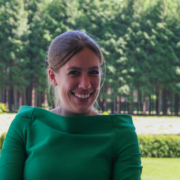A Call for Drastic Action to Achieve a Green, Inclusive and Equitable World for All – The Dutch SDG Barometer 2022
By Sarah Bumberger
“Humanity is on a highway to climate hell with its foot on the accelerator”, stated UN Secretary-General António Guterres at COP27. The adoption of the 2030 Agenda by all 193 UN Member States in 2015 was intended to put a bold plan into action to set the course for a better world by 2030.
We’re now in 2023 and the Netherlands is facing some major challenges to realise several of the SDGs. Apart from that, the country is confronted with latent social inequalities resulting from the war in Ukraine and COVID-19. To overcome these problems and learn and act faster than ever before, the Dutch SDG Barometer should provide an opportunity to learn. An opportunity to learn from each other and expand our knowledge to advance our sustainability efforts faster and more efficiently, so that we have even a small chance to achieve all SDG targets by 2023.
But first things first: Let’s introduce you to the SDG Barometer:
To gain valuable information about the awareness and contribution of organisations from all sectors, the Amsterdam School of International Business (AMSIB), the TIAS School for Business and Society and the Maastricht School of Management (MSM) have jointly produced the SDG Barometer, a tool that not only shows what organisations in the Netherlands have already done to contribute to the SDGs, but also highlights the importance of knowledge institutions in moving forward.
For example, the Barometer survey found that while 98% of all Dutch organisations surveyed pay attention to sustainability and 92% of all respondents have already entered cooperations with various organisations regarding SGDs, an even more systematic and partnership-based approach is still needed to achieve the 2030 Agenda. At this stage, the SDG Barometer clearly shows that the government needs to be even more committed to promoting cooperation and thus should also encourage organisations to actively pursue the SDGs.
This study is all the more important given that the Sustainable Development Report 2022 has downgraded the Netherlands from 9th place in 2020 to 17th place out of 163 countries included in the data list. How come? Surprisingly, SDG 2 (Zero Hunger) seems to be a big challenge for a very rich country like the Netherlands.
The country also faces several major challenges in achieving SDG 12 (Responsible Consumption and Production), SDG 13 (Climate Action), SDG 14 (Life Below Water) and SDG 17 (Partnerships for Goals). For this purpose, the Dutch Barometer examines how organisations are adopting the SDGs in order to identify priorities, motivations and challenges that influence organisations’ actions in relation to the SDGs.
At the halfway point to the adoption of the 2030 Agenda, however, there is also much cause for optimism. First, the Dutch SDG Barometer shows that the vast majority (96%) of organisations are familiar with the SDGs and 76% are paying more attention to sustainability. Furthermore, sustainability and the SDGs seem to have become a top priority for senior management, a clear sign that sustainability is no longer a ‘fringe’ issue. Nevertheless, as organisations find it most difficult to work towards SD1 (No Poverty), SDG 2 (Zero Hunger), SDG 14 (Life Below Water) and SDG 16 (Peace, Justice and Strong Institutions), a need exists for highlighting more best practice examples and a better balance between the neglected SDGs, with government intervening more regularly to make progress.
To that end, make sure you read the full report to learn more about what has already been done and how further progress can be made to continue developing policies that incentivise organisation to do more.
The Hague Humanity Hub is part of the SDG Nederland Network and is an SDG House. For more information on The Hub’s SDG Programme, why not check out the SDG Traineeships, our SDG Community or how we’re reaching the sustainable development goals.









